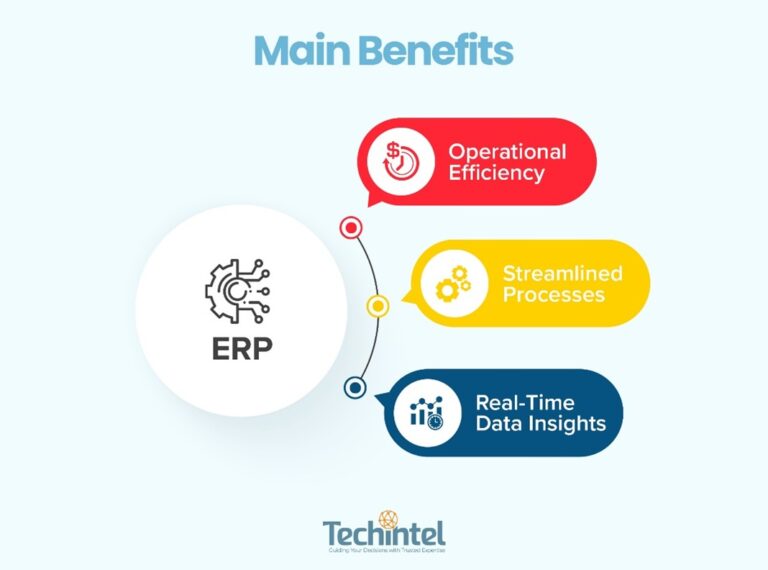Imagine having all your business functions—inventory, finances, HR—centralized in one place. That’s exactly what an ERP system does.
Small and medium-sized enterprises (SMEs) often face unique challenges when it comes to competing with larger, more established organizations. However, the right technology can help level the playing field. One such game-changer for SMEs is investing in an ERP system (Enterprise Resource Planning). Here’s why integrating ERP is a smart move for small businesses looking to grow and stay competitive.
Benefits of Enterprise Resource Planning for SMEs

Improved Operational Efficiency:
ERP allows your business to streamline its tasks, which in turn means your employees spend less time on repetitive admin work and more time focusing on activities that actually add value. This not only saves time and money but can also lead to significant improvements in your bottom line.
Streamlined Processes:
Many small and medium-sized businesses (SMEs) use different systems for different departments, which often leads to confusion and inefficiencies. ERP brings everything together on one platform, making workflows smoother and teamwork easier.
For example:
- Inventory management becomes more accurate.
- Financial reporting becomes clearer.
- HR processes become more organized.
With an ERP system, every detail is managed seamlessly, leaving no room for errors.
Enhanced Decision-Making with Real-Time Data:
Imagine having up-to-date insights about your business at your fingertips. ERP systems provide real-time data that help you make quicker, smarter decisions. Research indicates that companies using ERP solutions experience a reduction in decision-making time by over 35%. Whether it’s tracking performance, managing finances, or identifying trends, an ERP enables you to act fast and solve issues before they grow.
Competitive Advantages of Enterprise Resource Planning for SMEs:
Leveling the Playing Field with Larger Competitors:
Big companies often have advanced tools to stay ahead. With ERP, SMEs can level the playing field by accessing similar technology to streamline operations and boost efficiency. This allows smaller businesses to compete head-to-head with industry giants. For example, SAP Business One is tailored specifically for SMEs, offering functionalities that help manage sales, inventory, accounting, and more—all designed to give smaller companies a competitive edge.
Faster Response to Market Changes:
Business moves fast. Market conditions can change overnight, and being able to adapt is crucial. ERP provides real-time updates, helping SMEs quickly adjust production schedules, finances, or customer service strategies to seize new opportunities or tackle challenges effectively.
Increased Scalability and Adaptability for Growth:
As your business expands, your needs will grow too. A scalable ERP system grows alongside you, handling more complex workflows, new products, or even entry into new markets without compromising efficiency. This flexibility keeps your business agile and ready for future growth.
Summary
For small and medium-sized enterprises, investing in an ERP system isn’t just about staying efficient; it’s about staying competitive. It simplifies daily operations, provides actionable insights, and helps businesses move from reactive to proactive management.
By advancing to an ERP system, businesses are adopting a tool for efficiency, while building a foundation for sustainable growth and greater resilience in the face of changing market conditions.
For SMEs looking to remain competitive and thrive in the modern business landscape, an ERP system is an investment in the future of the business itself.




